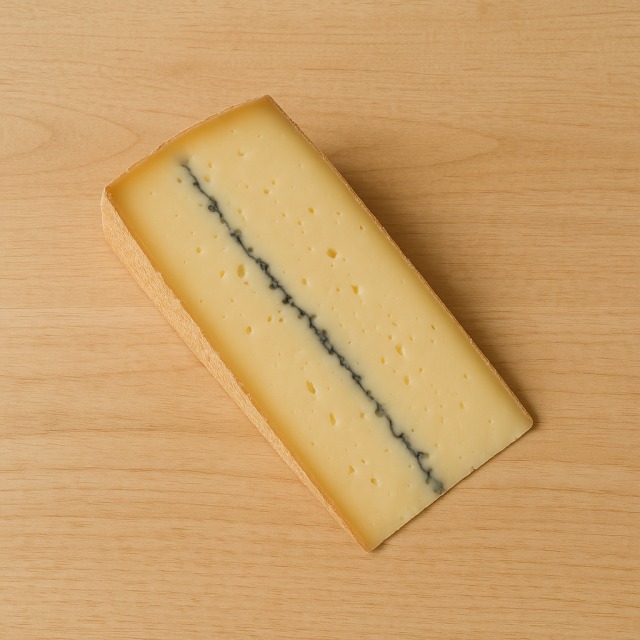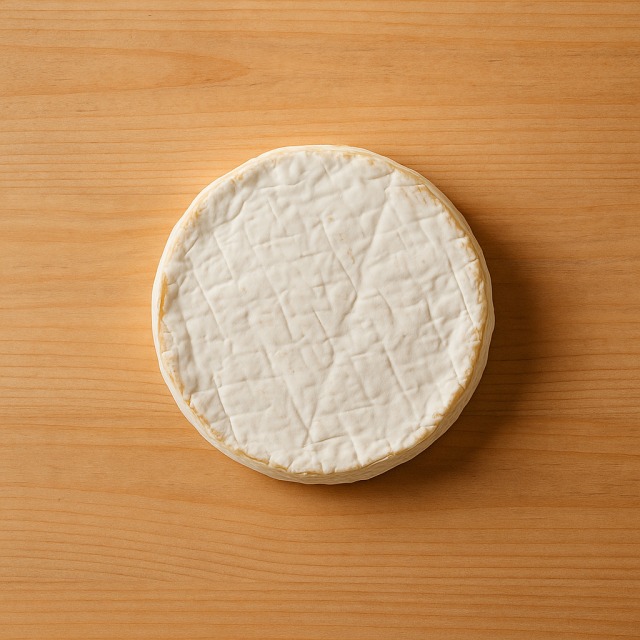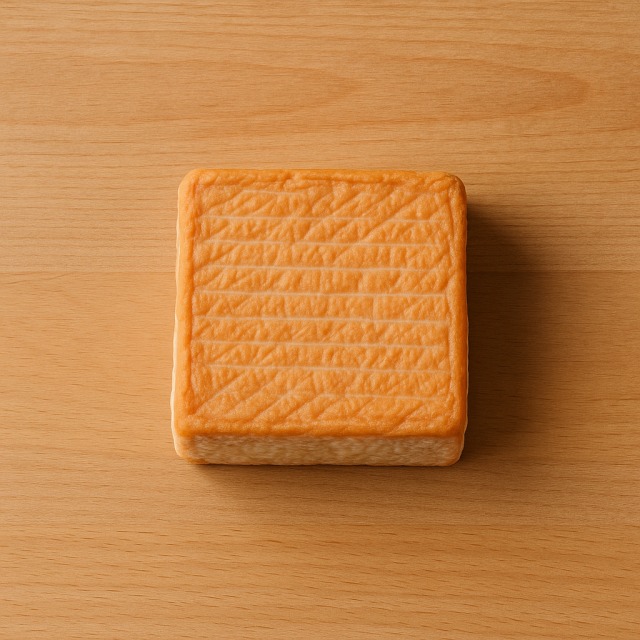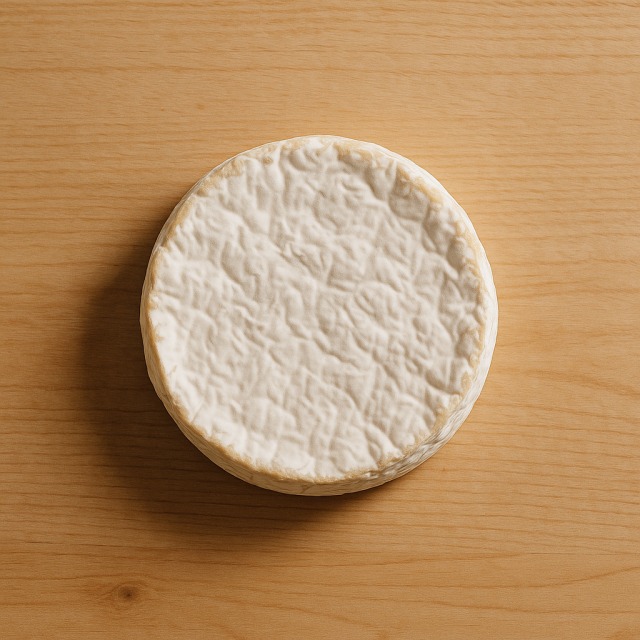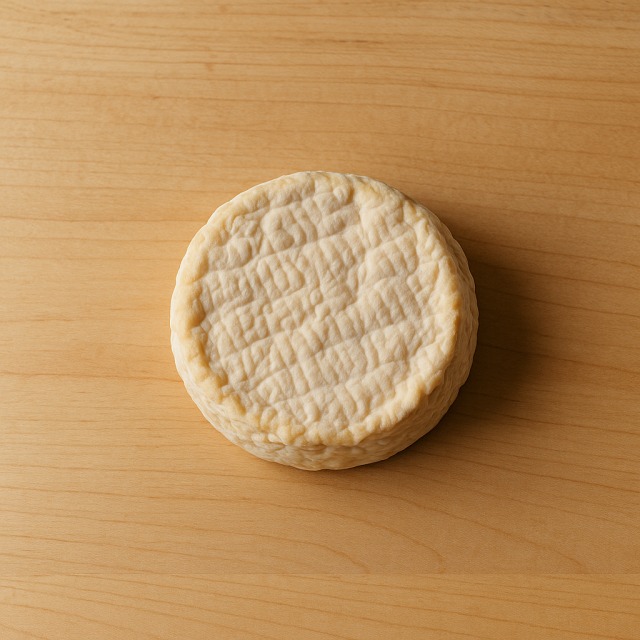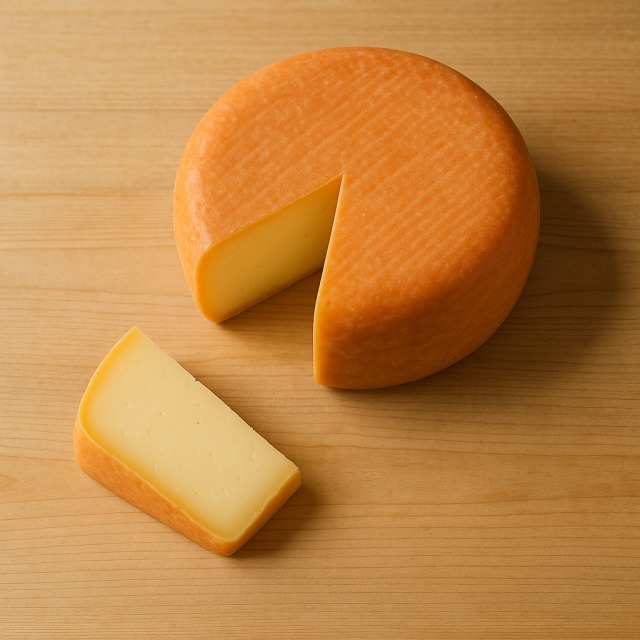Calorie Chart / Cheeses / Coulommiers
How Many Calories Are in Coulommiers?
Calculation of the nutritional value & Recommended Dietary Intake of coulommiers
For g and a calorie requirement of kcal
| Calories 124 kcal | Proteins 8.4 g | Lipids 10 g | Carbohydrates 0 g |
| 6% | 11% | 15% | 0% |
Health benefits of coulommiers
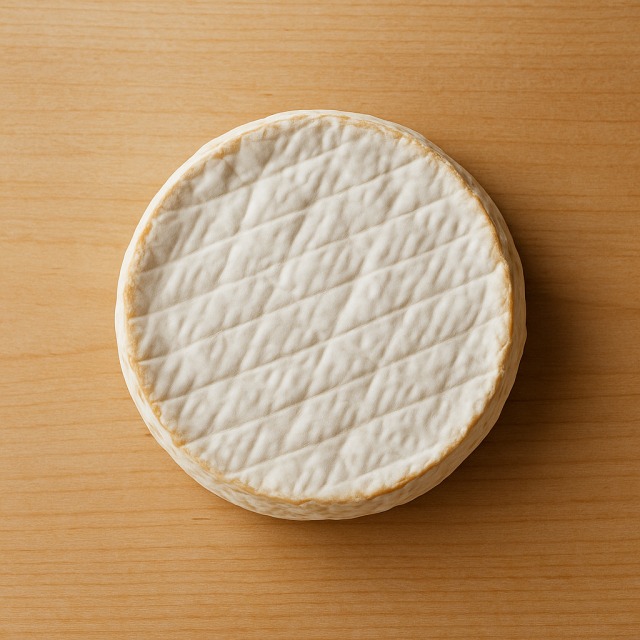
Coulommiers - 100g
Calories 309 kcal
Proteins 21 g
Lipids 25 g
Carbohydrates 0 g
Coulommiers is a soft-ripened cow's milk cheese from the Brie region, considered a high-calorie food because of its generous fat content and energy density. Despite these calories, it brings valuable nutrients to the table.
It is naturally rich in calcium and phosphorus, two minerals essential for bone health, and supplies vitamin B12 and vitamin A, nutrients that contribute respectively to red-blood-cell formation and healthy vision. Its proteins provide the nine essential amino acids, making the cheese interesting for muscle maintenance — a point appreciated by athletes who carefully monitor both proteins and calories. The white bloomy rind also contains harmless Penicillium candidum, which is believed to offer mild probiotic properties.
Historically, Coulommiers was traded on the famous Meaux market as early as the 18th century and was served at royal tables under Louis XVI. This nod to French gastronomic heritage can be an extra motivation for anyone counting calories but unwilling to sacrifice flavour.
Tips for incorporating coulommiers into a balanced diet
Because Coulommiers is high in calories, reasonable portions (30 g or one wedge) are enough to enjoy its creamy texture without overshooting your daily energy budget. Pair it with crisp apple slices or a handful of walnut kernels: the fresh fruit fibre and the unsaturated fats balance the cheese's saturated fats while keeping the overall calories moderate.
For a light lunch, tuck a thin slice of Coulommiers into a sandwich made with wholemeal bread, top with peppery arugula, and a drizzle of honey. You will obtain a sweet-salty contrast and a satisfying protein boost without the excess calories of a full cheese platter.
In warm dishes, let a cube of Coulommiers melt over steamed broccoli or stir it into a bowl of hot brown rice with herbs; the starch and fibre dilute the cheese's calories over a larger volume, enhancing satiety.
If you crave a cheese-centred recipe, try a tartine inspired by the famous tartiflette: replace Reblochon with a thinner layer of Coulommiers, add sautéed onion and baked potato slices. You keep the comforting flavour while cutting down on overall calories by serving individual portions.
Frequently Asked Questions
- How many calories are in Coulommiers?
- 309 kcal per 100 g.
- Is Coulommiers higher in calories than brie?
- Both cheeses are energy-dense, but Coulommiers is usually slightly firmer and can be a touch richer; their calories are comparable, so portion control matters for either choice.
- Does Coulommiers fit into a keto diet?
- Yes. With virtually no carbohydrates and a mix of fat and proteins, its calories come largely from fat, making it compatible with ketogenic meal plans.
- Can lactose-intolerant individuals eat Coulommiers?
- The cheese does contain lactose, but the ripening process lowers its level. People with mild intolerance often digest it better, yet sensitive individuals should test small amounts.
- What is the best way to store Coulommiers to avoid waste and extra calories from spoilage?
- Keep it in its original paper inside an airtight box in the refrigerator's cheese drawer; bring it to room temperature 30 minutes before serving for full flavour without the need to add extra high-calorie condiments.
- How does Coulommiers compare with camembert in proteins?
- Both cheeses offer similar protein density; choosing one over the other will not significantly change your calorie-to-protein ratio.
Similar foods
Information provided by Calorie Menu may contain inaccuracies or errors. It cannot, under any circumstances, substitute medical advice or medication.
